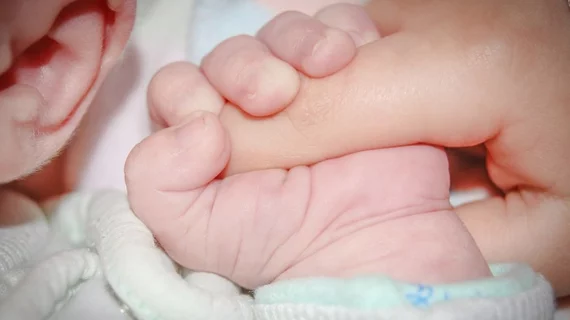Breakthrough in SIDS research reveals possible cause of infant deaths
For many years, the underlying cause of sudden infant death syndrome (SIDS) has been unknown. Researchers at The Children's Hospital at Westmead (CHW) in Australia may have just identified a biomarker that could reduce the risks of SIDS.
In a study published in The Lancet eBioMedicine, researchers identified Butyrylcholinesterase (BChE) as the first biochemical marker that could help detect risks of SIDS among babies while they are alive. The study analyzed BChE activity in 722 dried blood spots (DBS) taken at birth as part of the Newborn Screening Program, using de-identified samples approved by parents. BChE levels were significantly lower in babies who died from SIDS compared to surviving babies of the same age and gender.
Researchers believe that a deficiency of BChE, which plays a major role in the brain’s arousal pathway, reduces an infant’s ability to wake up or respond to the external environment. SIDS is defined as the unexplained death of an apparently healthy infant less than one year of age, during a period of sleep. The research was led by Carmel Harrington, MD, an honorary research fellow at CHW, who lost her son to SIDS 29 years ago.
“Babies have a very powerful mechanism to let us know when they are not happy,” Harrington said in a statement. “Usually, if a baby is confronted with a life-threatening situation, such as difficulty breathing during sleep because they are on their tummies, they will arouse and cry out. What this research shows is that some babies don’t have this same robust arousal response.”
Now that researchers know BChE is involved in the risk of SIDS, they can begin to work on interventions to reduce the risk of death.
“An apparently healthy baby going to sleep and not waking up is every parent’s nightmare and until now there was absolutely no way of knowing which infant would succumb. But that’s not the case anymore,” Harrington said. “This discovery has opened up the possibility for intervention and finally gives answers to parents who have lost their children so tragically. These families can now live with the knowledge that this was not their fault.”
Researchers will next look at identifying the BChE biomarker as part of infant screening and develop protocols to address a deficiency. This next step could take around five years to complete.

